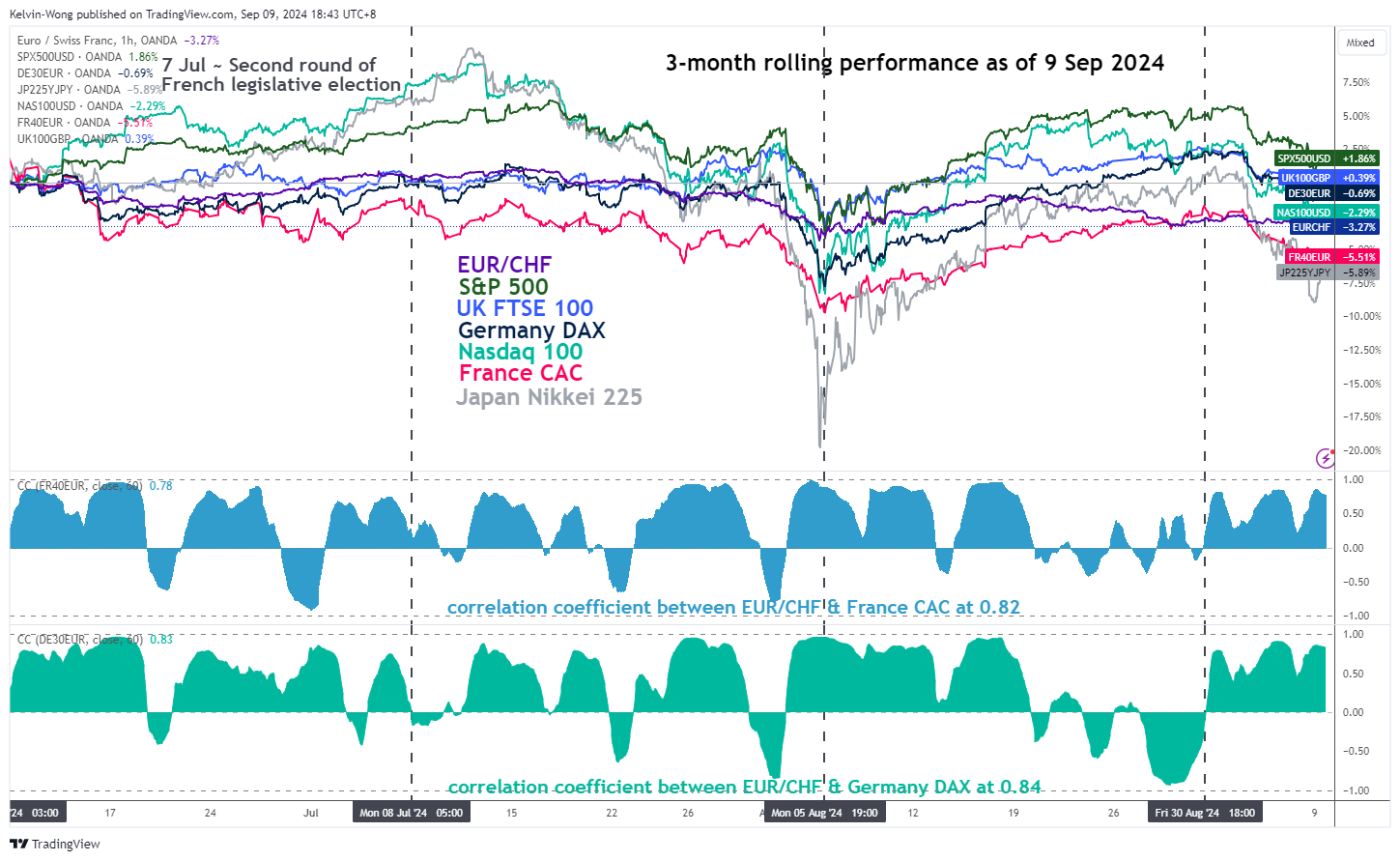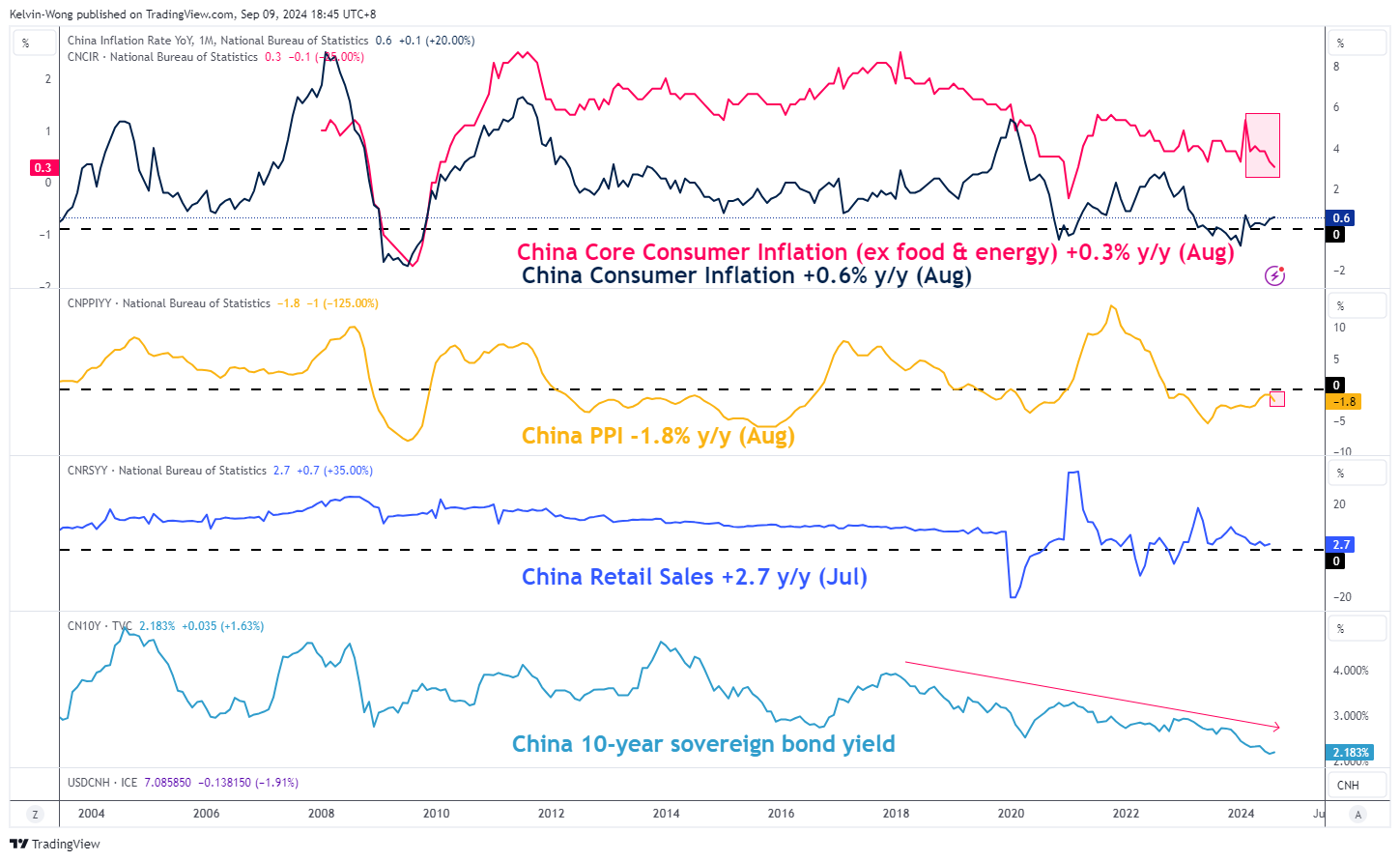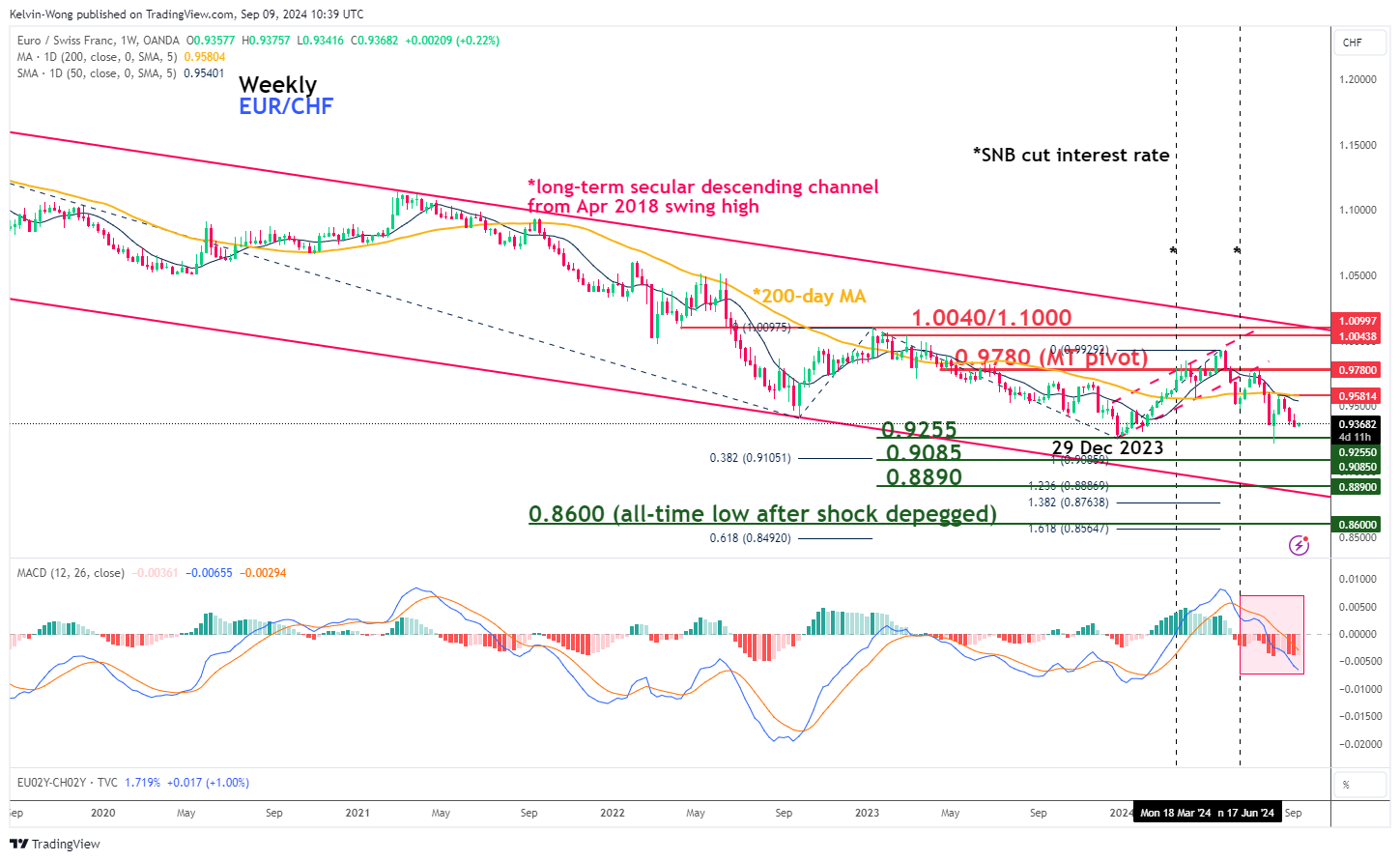- EUR/CHF has continued to exhibit a high direct correlation with France CAC and Germany DAX.
- China’s core inflation and producer prices for August have indicated a persistent trend of lackluster internal demand.
- Sluggish China’s consumer demand may hurt the profits of key European makers of luxury goods, cars, and machinery.
- Watch the key intermediate support of 0.9255 on the EUR/CHF.
This is a follow-up analysis of our prior report, published on 2 August 2024.
Since the start of September, global benchmark stock indices wobbled where the MSCI All-Country World Index ETF (NASDAQ:ACWI) ended last Friday, 6 September with a weekly loss of 4%, its worst performance since the week of 6 March 2023 during the onset of the US regional banking crisis.
EUR/CHF Continued To Move In Synch With European Stock Indices
Fig 1: 3-month rolling performance CAC 40, DAX, EUR/CHF & other major stock indices (US, UK, Japan) as of 9 Sep 2024 (Source: TradingView)
Last week’s risk-off episode, the EUR/CHF has moved in tandem with two key European benchmark stock indices; the France CAC and Germany DAX as their respective 60-period rolling correlation coefficients have remained at a high positive reading of 0.82 and 0.84 at this time of the writing (see Fig 1).
Weak China Inflation May Stoke Further Downside Pressure in European Equities
Fig 2: China’s consumer inflation & producer prices trends as of Aug 2024 (Source: TradingView)
Today’s release of China inflation data for August suggests that the state of internal demand in China continued to languish and the deflationary risk spiral narrative is back at the forefront without any clear signals and or initiatives by China’s top policymakers to implement more forceful expansionary policies to drive up consumer and business confidence.
China’s core consumer inflation rate (excluding food and energy) continued to decline for four consecutive months as it fell to 0.3% y/y in August from 0.4% in July. Factory gate prices in China represented by produce prices shrank by 1.8% y/y in August, steeper than its 0.8% drop in the previous month and below expectations of a 1.4% fall (see Fig 2).
Hence, China’s persistent weak consumer demand, a key market for European makers of luxury goods, cars, and machinery is likely to trigger a further toll on these European firms’ profits, in turn, further potential downside on the France CAC and Germany DAX cannot be ruled out.
EUR/CHF Is Eying the Intermediate Key Support at 0.9255
Fig 3: EUR/CHF medium-term & major trends as of 9 Sep 2024 (Source: TradingView)
During the last synchronized global risk-off episode on 5 August, the EUR/CHF staged a decline but managed to “survive” at the 0.9255 level (29 December 2023 swing low).
However, its rebound from 5 August to 12 August has been capped by its 200-day moving average which has acted as a resistance at around 0.9580 (see Fig 3).
In addition, the weekly MACD trend indicator has now breached below its centreline which suggests that the major downtrend phase of the EUR/CHF is likely in the motion to stage lower lows.
If the 0.9780 key medium-term pivotal resistance is not surpassed to the upside and a break below 0.9255, the EUR/CHF may see further weakness for the next medium-term supports to come in at 0.9085 and 0.8890.
However, a clearance above 0.9780 negates the bearish tone for a potential rebound to expose the long-term pivotal resistance zone of 1.0040/1.1000 (also the upper boundary of the long-term secular descending channel from April 2018 high).
